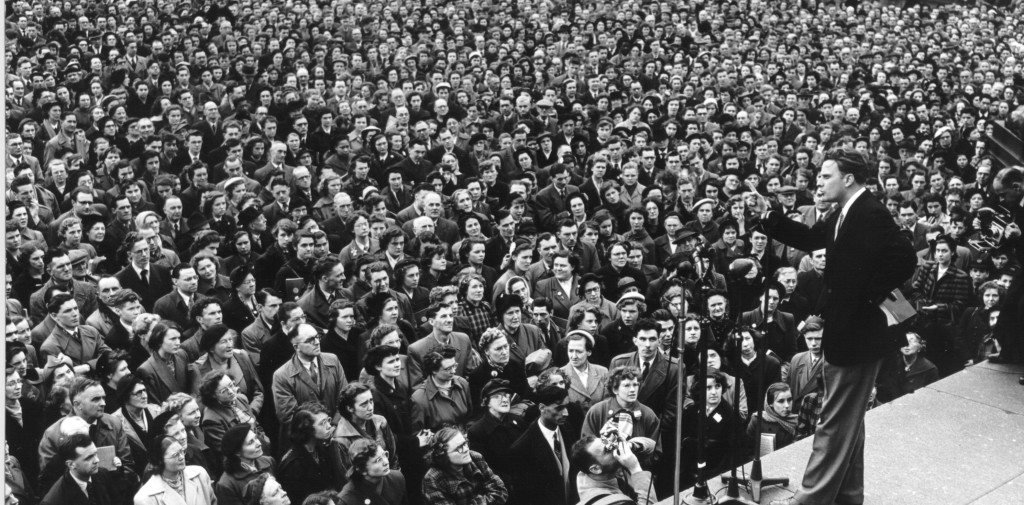Last updated on February 26, 2014
Both Locke and Newman certainly tried to encapsulate why people believe in highly irrational ideas. In neither case were they entirely successful, and both for very different reasons. Locke’s over-reliance on evidence, and Newman’s over-reliance on intellectual decision making both hamper their attempts to explain what makes faith so convincing to those who have it. The break in communication between those who are religious and those who are not is not because of criteria or some kind of empirical grounds but a fundamentally different approach to existence. Certainly, both attempt to couch their beliefs in philosophically acceptable language, but they only hamper their own views as a result.
One could consider Newman and Locke as a kind of apologetic for faith. However, in the same way that Christian apologetic tries to defend Christianity (without success in many cases, I might add), trying to “prove” faith is simply a failed enterprise. Even psychologically, one can examine a person’s brain and still not understand what turned on the “faith” switch. Imagine a person who attends a Billy Graham evangelical meeting – the kind where people “get saved.”, or obtain salvation in the general sense. The basic information (or evidence) such people are given for such a belief could only be called tenuous by any stretch of the imagination. Basically, examined through a reductive lens, what one learns is: “God sent his only son Jesus to die for your sins, and if you declare Jesus Christ as Lord and Savior, you will be saved.” This, in fact, remains convincing enough for millions of persons to accept the Christian religion.
By any intellectual standard, this is indubitably insane, and yet the movement continues. Such a state cannot be ascribed to a“lower class” phenomenon, an attempt to label religious persons as “uneducated.” – that would be a rash generalization as to the diverse range of people who attend such events. It is not as if the speaker is telling “facts” or is trying to prove the historical validity of his position. People just accept his/her words directly without any kind of interpretation. One could, of course, attribute this, simply, to some kind of “emotion”, “feeling” or “experience”, but that is not necessarily the case. Claiming that the speaker manipulates his audience becomes disingenuous to the speaker as well – many of those who are pastors or evangelicals are convinced that what they speak is true. Does the fact that he believes what he says convince people so thoroughly? How assent is given in this case is not as simple as one would imagine.
The key to remember in this example is that 1. No evidence is provided and 2. No intellectual “weighing” is performed. From the time the person hears the message to the time they accept it wholeheartedly, neither of these two things occur. Assent cannot possibly involve any rational consideration; it just “happens.” There is only the decision to accept or reject whatever has been given. This is only in reference to faith, of course. This does not preclude doubt; every person of faith has their “dark night of the soul”, wherein one debates with themselves whether or not they are right. In fact, a sequence of books in the Bible – called the Megilloth, consisting of Ruth, Song of Songs, Ecclesiastes, Lamentations, and Esther – displays this sentiment.22 God is mentioned constantly as “silent” or “not present”, and Esther does not mention God at all. Such experience is a part of the Christian tradition.

Logic and rationality are not antithetical to religious assent; they are merely irrelevant. Certainly, one can use science to examine the circumstances or mental activity involved, but analysis will not get you any closer to becoming a religious person, nor understanding why religious people are so convinced as to their beliefs. Assent, as a intellectual concept, does not satisfy this particular problem.
Instead of “assent”, the idea of a “religious paradigm shift” might bear the weight of explaining this phenomenon. A “religious paradigm shift” is a change in the framework of a person’s thought processes. Once certain ideas, religious ones, are accepted, it is impossible to view the world in a materialistic way ever again. Hence, assent limits the concept only to a change in ideas, but “religious paradigm shift” is a total change in a person’s life. In the same way, the views of a religious person before and after conversion are staggering.
It is not only a simple belief that is accepted by being a Christian, but daily perception also transforms. Mere coincidences are no longer “coincidences”; that a God exists at all rules out the possibility of coincidence. One feels free because they are freed from “sin”, the perceived problem of humanity. They are now free from what had prevented them from being fully human, the way God intended human beings to live originally. It is not a simple case of “assent”, for this worldview changes everything that came before.
Basic assumptions of the past are cast out of the window. In deference to their thankfulness for God’s grace, they will do all in their power to defend Him (however misguided it may be at times, much of it starts with good intentions). There is no “constitution” that binds a man or woman’s relation to their fellow citizens – all humans are “children of God”, whether or not those others accept their birthright. Assent does not contain these connotations.
Locke and Newman also discount the reliability of human experience to a grand degree – then again, this is what philosophy does in general.
Philosophers can, at times, remove themselves from that which makes humans “human” to examine “humanity” – this is merely a human development, not one that reflects reality. What probability leads to, inevitably, is an examination of where these beliefs come from, and this analysis leads us to fields like psychology, sociology, and the sciences. This further analysis leads us to a biological study of why humans make decisions with certain methodologies, why people give assent in certain ways, and why supposedly “irrational” beliefs are given full confidence. Thus, it is found that genetics have total control of decisions and influence how humans think from the day they are born until the day they die – in effect, the continual reduction of human experience to such restrictive terms destroys what makes a human being a “person”, rather than simply a biological animal. Author Marylinne Robinson says in her collection of essays The Death of Adam :
It all comes down to the mystery of the relationship between the mind and the cosmos. Those who would employ reductive definitions of utility or reality credit their own perceptions of truth with fundamentalist simple-heartedness, brooking no allusion to complexities and ambiguities and countervailing experience. But if the mind is able to tell us what is true, why not credit its attempts at higher truth? And if its intuitions in these matters seem often to be in error, even to those who do not by any means wish to dismiss them, are not its intuitions always very substantially in error even in matters of science or economics? Is it not in fact a very naïve conception of reality, and of its accessibility to human understanding, that would exclude so much of what human beings have always found meaningful, as if by this means fallibility or error or delusion could be localized and rejected?23
All of this is a roundabout way of saying: a rational or logical, or even philosophical explanation of “assent” can never capture the transformative and completely unfathomable, illogical, and contradictory nature of human decision making. But, then again, human life is permeated with the contradictory ways of human beings, who both wish to be part of nature and separate form it, who wants to be intellectual but become obstinate when their views are attacked, who get angry at an appliance that doesn’t work yet are relatively indifferent to the thousands of people who are slaughtered in Darfur.
Life is messy business – religion is yet another one of those things that makes humans “persons”, and not just another biological creature. This observation is not simply limited to Christianity; atheism, as a rule, would also fit within this category, as any worldview has its similar contradictions. Science accepts the “best tools we have” as a cogent argument, yet criticizes religion on much the same grounds. Assent is a daily feature of human life that confounds us, but explanation is not necessary for everything – sometimes, the best answer to a question is no answer at all.
———-
22 Jay Williams, “A Liturgical Enigma,” The Bible and Interpretation, http://www.bibleinterp.com/opeds/enigma357918.shtml.
23 Marilynne Robinson, The Death of Adam: Essays on Modern Thought, New York (Mariner Books: 2000), 3.

